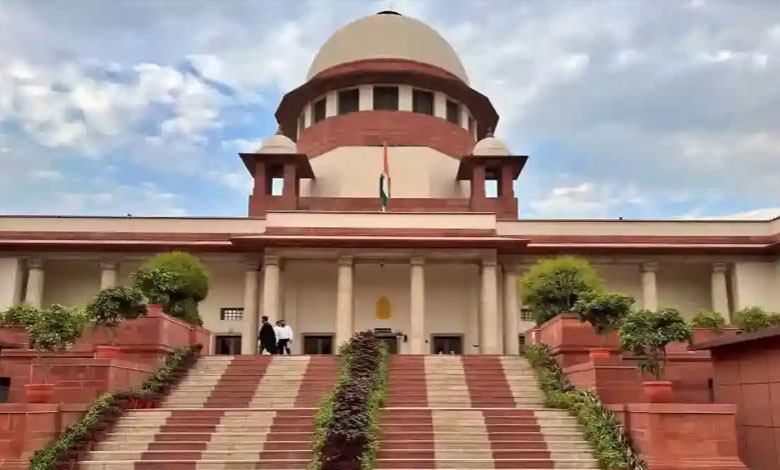Supreme Court Hears Petitions Challenging Waqf (Amendment) Act, 2025
A three-judge bench of the Supreme Court, comprising Chief Justice Sanjiv Khanna and Justices Sanjay Kumar and KV Viswanathan, is currently hearing multiple petitions challenging the constitutional validity of the Waqf (Amendment) Act, 2025.

New Delhi: A three-judge bench of the Supreme Court, comprising Chief Justice Sanjiv Khanna and Justices Sanjay Kumar and KV Viswanathan, is currently hearing multiple petitions challenging the constitutional validity of the Waqf (Amendment) Act, 2025.
Table of Contents
Kapil Sibal Argues Violation of Fundamental Rights
Senior advocate Kapil Sibal, representing the petitioners, argued that the amended Act infringes on the fundamental rights guaranteed under Articles 25 and 26 of the Constitution. “What is sought through Parliamentary legislation is to interfere with the essential and integral part of faith,” he said.
Pointing to Section 3(r) of the Act, which requires individuals establishing a Waqf to prove five years of practising Islam, Sibal questioned the necessity of such a clause: “If I am born a Muslim, why would I have to prove that?”
Congress, Owaisi, and Others Challenge the Law
The Congress party, which had earlier announced its opposition to the Bill, filed a petition after it received Presidential assent. Congress MP Mohammad Jawed contended that the Act violates Articles 14, 25, 26, 29, and 300A of the Constitution.
A separate plea filed by AIMIM chief Asaduddin Owaisi termed the amendments as “manifestly arbitrary” and in violation of several constitutional provisions including Articles 14, 15, 21, 25, and 30.
Petitions have also been filed by the All India Muslim Personal Law Board (AIMPLB), Jamiat Ulema-i-Hind’s Maulana Arshad Madani, AAP MLA Amanatullah Khan, and other civil rights groups and individuals.
BJP-Ruled States Defend the Law
In contrast, six BJP-governed states — Haryana, Maharashtra, Madhya Pradesh, Rajasthan, Chhattisgarh and Assam — have filed intervention pleas urging the court to uphold the legislation.
Haryana highlighted the need to reform Waqf property management and cited issues such as incomplete surveys and pending tribunal cases.
Maharashtra stated it would assist the court with parliamentary records and comparative legal frameworks to support the law.
Madhya Pradesh emphasized the importance of technology in enhancing transparency and governance, while Rajasthan supported the clause mandating a public notice before declaring properties as Waqf.
States Back Digital Governance and Tribal Land Protections
Chhattisgarh backed the creation of a digital portal for property tracking and auditing, saying it would bring transparency.
Assam focused on the protection provided to tribal lands, noting that Section 3E of the Act bars any declaration of Waqf in areas covered under the Fifth or Sixth Schedule. It emphasized that eight of its 35 districts are under the Sixth Schedule.
Uttarakhand Waqf Board Supports Amendments
The Uttarakhand Waqf Board also submitted a plea supporting the amendments and has requested to intervene in Owaisi’s petition.
Government Stance: “No Harm to Any Muslim”
Minority Affairs Minister Kiren Rijiju said the Act is aimed at benefiting poor Muslims and does not affect existing Waqf properties. “The Modi government works with the vision of Sabka Saath, Sabka Vikas,” he said.
About Waqf
The term ‘Waqf’ refers to a charitable endowment under Islamic law. These are typically properties donated for religious or public welfare purposes, including mosques, schools, and hospitals.
